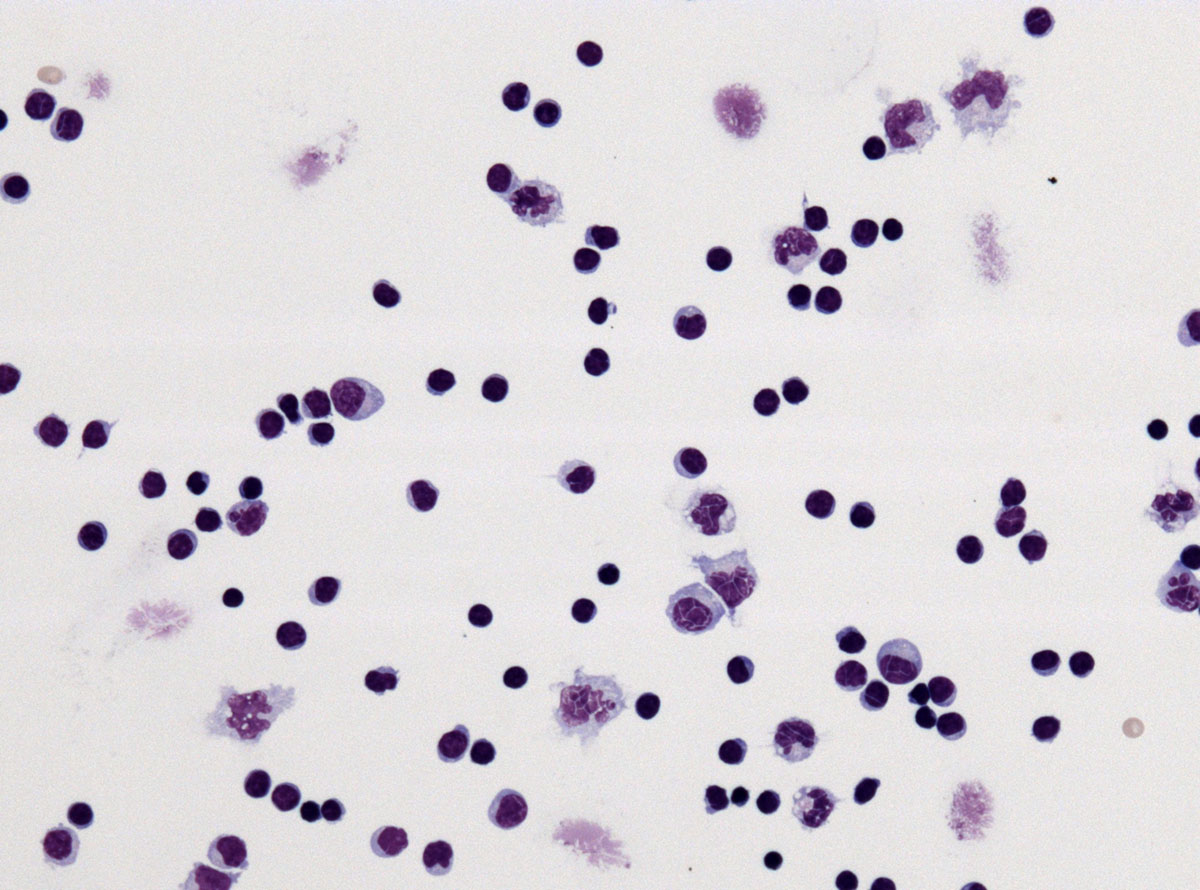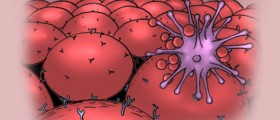Viral meningitis is only one form of meningitis and it represents an inflammation of the meninges caused by viruses. It is more frequent among children than in adults. A variety of viruses can cause viral meningitis and herpes virus, chickenpox, measles, mumps, polio virus and coxackie virus are only some of them.
What are Symptoms of Viral Meningitis?
The symptoms and signs of viral meningitis are actually very similar to those of bacterial meningitis. The infection starts with fever and chills, and progresses to intensive headache, nausea, vomiting, sensitivity to light (photophobia) and stiff neck. Patients suffering from viral meningitis are weak, sleepy and there may also be confusion and lethargy.
In babies viral meningitis leads to fever, baby's hands and feet are cold and he/she refuses to be fed. The neck is stiff, the baby vomits and there is fullness and elevation of the fontanelle, a soft spot on an infant's head. The child has poor muscle tone and may develop seizures and lethargy.
- Once viral meningitis is diagnosed, efforts should focus on symptomatic treatment and expediting discharge. Theoretically, diagnosis can happen quickly; a lumbar puncture and the diagnostic PCR can be done within a few hours.
- However, in our study, the median time from admission to lumbar puncture for all patients was 17 h, and the median length of hospitalisation for patients with viral meningitis was 4 days.
- The prolonged time from admission to lumbar puncture is concerning. International guidelines all stress the urgency of the diagnostic lumbar puncture delays decrease pathogen yield and can increase mortality.
- The length of time to get a lumbar puncture might explain why a large proportion of patients had no cause identified in our study, especially those with viral meningitis, for which there was a highly significant association between time to lumbar puncture and likelihood of getting a definitive diagnosis. Unnecessary neuroimaging might have contributed to the delays, and has been highlighted previously as a risk factor for increased mortality in bacterial meningitis.
- In the UK, the requirement for all patients to be transferred out of the emergency department within 4 h creates unintended pressure, causing key investigations such as lumbar puncture to be deferred until patients have been admitted to a ward. Additional delays in diagnosis occur if the CSF sample is sent to an offsite laboratory for analysis.
- Because of sample batching and transport, it can take several days from doing a lumbar puncture to receiving results, despite the rapidity of the test itself. If PCR is done locally, 7 days a week, on receipt of a single CSF sample, the length of the hospital stay can be reduced to less than a day, resulting in substantial cost savings. To make this saving relatively simple, changes are required, such as doing lumbar punctures in the emergency department and having diagnostics available on site.
Treatment for Viral Meningitis and Recovery Time
The treatment for viral meningitis is symptomatic. This means that there is no specific cure for the infection and that patients are only administered medications that take care and reduce the intensity of symptoms and signs of the inflammation.
The recovery time for viral meningitis depends on the severity of the condition and the patient's general health. It approximately lasts 7 to 14 days. Some patients may need a longer time to fully recover and get on their feet again. In such patients, there is a chance for some symptoms to linger for a certain period of time. These symptoms include muscle weakness and muscle spasms, tiredness, headache, insomnia and personal changes (behavioral changes such as problems with concentration).
Patients suffering from viral meningitis require plenty of rest, and sufficient intake of fluids and medications that can effectively deal with headache and fever. The recovery is supposed to take place in a dark room isolated from loud noise. This way a patient can properly rest and the recovery time may not take long.
Unfortunately, some patients develop complications of viral meningitis which prolong the recovery time. Some of the potential complications of viral meningitis include hearing loss, brain damage and hydrocephalus. Hearing loss develops as a consequence of damage to the hearing nerve. This complication usually affects children who have delayed treatment for meningitis.
Brain damage caused by viral meningitis usually affects people who have not been treated at all or those who have not been treated appropriately. The damage may affect different parts of the brain and lead to blindness, loss of speech, learning disabilities, paralysis, behavioral problems etc. And finally, hydrocephalus develops due to blockage in the absorption or flow of the cerebrospinal fluid.

















Your thoughts on this
Loading...